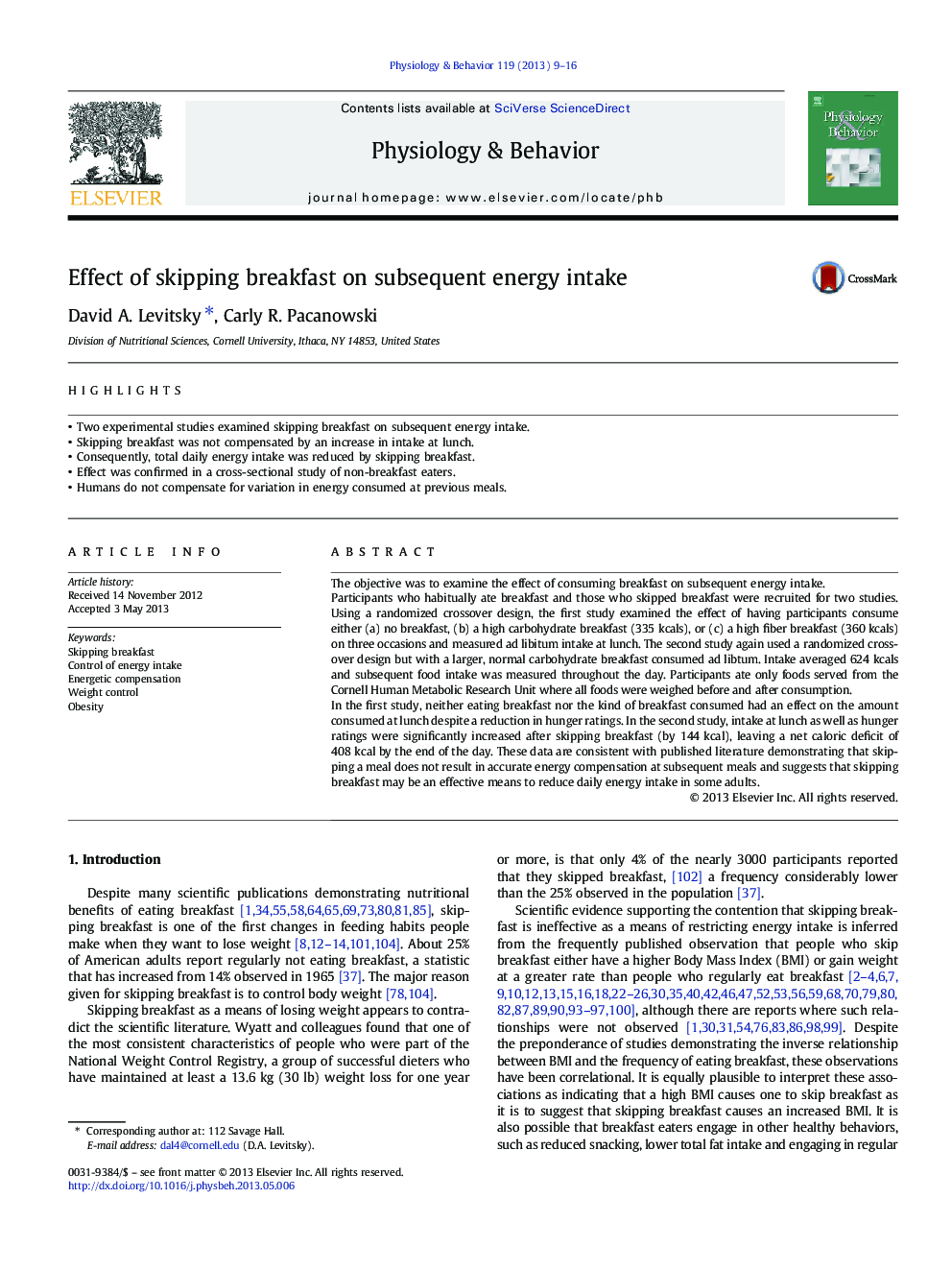| Article ID | Journal | Published Year | Pages | File Type |
|---|---|---|---|---|
| 5924768 | Physiology & Behavior | 2013 | 8 Pages |
Abstract
In the first study, neither eating breakfast nor the kind of breakfast consumed had an effect on the amount consumed at lunch despite a reduction in hunger ratings. In the second study, intake at lunch as well as hunger ratings were significantly increased after skipping breakfast (by 144Â kcal), leaving a net caloric deficit of 408Â kcal by the end of the day. These data are consistent with published literature demonstrating that skipping a meal does not result in accurate energy compensation at subsequent meals and suggests that skipping breakfast may be an effective means to reduce daily energy intake in some adults.
Related Topics
Life Sciences
Biochemistry, Genetics and Molecular Biology
Physiology
Authors
David A. Levitsky, Carly R. Pacanowski,
